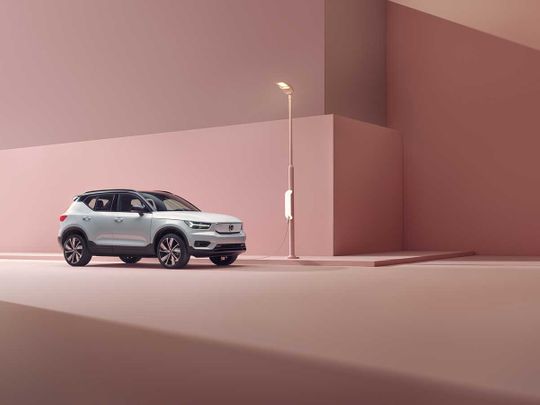
The Swedish word, omtanke — caring, consideration, think again, is at the heart of Volvo’s business and its approach towards making vehicles with cutting edge technology solutions that are safe and sustainable.
Volvo Cars started producing automobiles in Sweden in 1927. Today, it is a global brand with sales in about 100 countries. Focusing always on innovation and world-leading safety technology, its history of game-changing achievements positions Volvo Cars as one of the most respected and recognizable car brands in the world.
From the very first Volvo Cars ÖV4— nicknamed ‘Jakob’— Volvo has been using the best quality materials to create cars that are highly regarded not only for their durability, but for their outstanding quality. Today, as Volvo’s award-winning cars continue to set new benchmarks in automotive safety and connectivity, the brand is committed to its industry-leading vision for an all-electric future as well.
Innovation in its DNA
Volvo Cars moves forward by constantly ideating on and developing new technologies. Innovation is in its DNA, a spirit that forms the basis for its ambitions in the coming years within the fields of electrification, safety, autonomous drive and connectivity.
Volvo Cars has a rich heritage of unique safety innovations such as the modern seat belt which was given away to the whole industry and is now standard in all vehicles around the world. Volvo also came up with the side impact protection system, the pedestrian detection system, and numerous child safety products.
Volvo’s innovations provide a laundry list of significant world firsts in recent years, making lives easier and safer while being kinder to the environment. So, while innovations such as the unique outside air subwoofer mounted on the XC90s wheel arch saves space, it also sounds better than conventional car subwoofers. Auto braking at intersections is another Volvo world first, introduced in the XC90 in 2014 as part of Volvo’s City Safety system. Other significant firsts include run-off road protection and the ability of your Volvo car to quickly locate vacant parking spaces thanks to Volvo’s Sensus Connect technology, an integrated park application.
And while Volvo’s technology is patented, the brand realises the importance of sharing the valuable knowledge and insights, it has gained in the field of safety over the decades, with the rest of the world.
Project E.V.A.
This year, Volvo Cars celebrates 60 years of sharing safety knowledge with its open-for-all digital library, a world first that sees Volvo Cars for the first time making its safety knowledge easily accessible in a central digital library and that it urges the car industry to use, in the interest of safer roads for all.
Called Project E.V.A. (Equal Vehicles for All) the initiative embodies and celebrates sixtyyears-worth of sharing research into car safety with the world while also highlighting a fundamental issue with inequality in terms of car safety development.
Safe and beautiful
Today, as the Swedish automotive brand showcases a proud and confident Scandinavian design language through its broad product portfolio, the overarching message of manufacturing safe, secure and reliable automobiles remains a constant, echoed in the hearts of thousands of satisfied Volvo customers across the globe.
The XC90 large SUV, launched in 2014, was the first model to introduce Volvo’s new design language. Its latest iteration, the model year 2020 version is now in production at the Torslanda plant in Sweden and available to order in all Volvo markets around the globe.
The XC90 set the tone for all subsequent new 90, 60 and 40 Series cars, based on the SPA and CMA modular vehicle architecture that allow for true premium proportions. All three SUVs in the range won prestigious Car of the Year awards in North America, Asia and Europe, demonstrating the success of Volvo’s new design language.
Sustainable future
Volvo hopes to have up to 50 per cent of all its vehicles to be fully electric by the years 2025, with one million electrified Volvo cars on the road that include mild hybrid, plug-in hybrid and pure electric vehicles. It also aims to achieve climate-neutral manufacturing operations by 2040, arising from the fact that Volvo cares about environmental impact and its carbon footprint.
Its long-term goal is to create a cleaner, safer planet for all. In this regard, up to 25 per cent of plastics used in new Volvo cars from 2025 will be recycled as well.
The advance of electric cars also constitutes the biggest change in the history of the automobile. For the first time in over a century, cars move without a petrol or diesel engine in the engine bay and have a battery in the floor, changing the car at its core. In keeping with trends, Volvo’s forthcoming battery-powered Volvo XC40 SUV will be the brand’s first fully electric car, proving that Volvo cars can be made better by taking certain things away.
At the same time the fully electric XC40 retains all the features that have made it one of Volvo Cars’ bestselling models. It also embraces the elegant, Scandinavian design language that has defined Volvo’s rebirth and combines good looks with utility and functionality.













